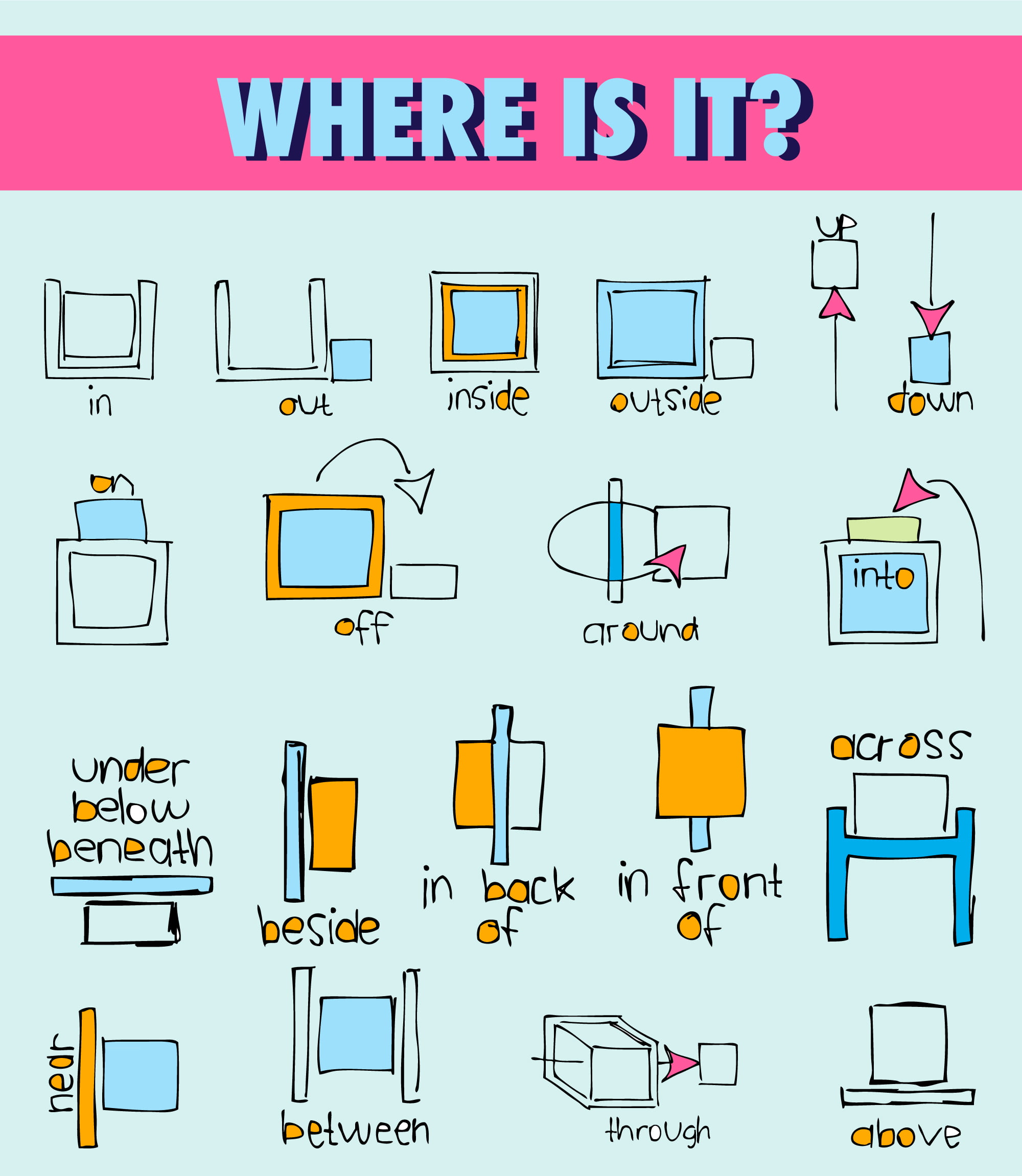Elementary English Grammar Essentials 5 MUST KNOW Grammars
Here are five essential grammar rules in English that you must know:
1. Subject-verb agreement: Subject-verb agreement is a grammatical rule that requires the subject of a sentence to agree with the verb in number. This means that if the subject of the sentence is singular, the verb must be singular. Likewise, if the subject of the sentence is plural, the verb must be plural.
For example, in the sentence:
"She walks to the store," the subject is "she," which is singular, and the verb is "walks," which is also singular.
If the sentence were "They walk to the store," the subject would be "they," which is plural, and the verb would be "walk," which is also plural.
Subject-verb agreement is important because using the wrong form of the verb can make the sentence unclear or grammatically incorrect. Incorrect subject-verb agreement can also make a sentence sound awkward or ungrammatical.
It's important to pay attention to the subject of the sentence to determine whether the verb should be singular or plural. Common errors in subject-verb agreement occur when the subject and verb are separated by a long phrase or clause, or when the subject is an indefinite pronoun like "everyone" or "someone," which can be either singular or plural depending on the context.
Try a quiz on subject-verb agreement:
Choose the correct verb to complete each sentence.
- The dog (barks/bark) loudly every night.
- She (drives/drive) to work every day.
- The boys (play/plays) soccer after school.
- The book on the shelf (is/are) very old.
- The students in the class (has/have) to take a final exam.
Answers:
- barks
- drives
- play
- is
- have
Read here about how NSEO teachers develop foundations of grammar and correct grammar mistakes
2. Use of articles: In English grammar, articles are words that come before a noun to indicate whether the noun is specific or general. There are two types of articles in English: definite and indefinite.
Indefinite articles are "a" and "an." They are used when referring to a non-specific or unidentified noun. For example, "I need a pen" or "Can I borrow an umbrella?" Here, the speaker is not referring to a specific pen or umbrella but rather any pen or umbrella that will suffice.
Definite article is "the." It is used when referring to a specific or identified noun. For example, "The pen on my desk is blue" or "I am going to the cinema tonight." Here, the speaker is referring to a specific pen or cinema.
Some Exceptions:
The use of articles can be tricky because there are many exceptions to the rules. For example, some nouns don't require an article, such as proper nouns, uncountable nouns, and plural nouns used in a general sense. Additionally, some nouns can be used with both indefinite and definite articles depending on the context.
Understanding the use of articles is important because using the wrong article or omitting it altogether can change the meaning of a sentence or make it sound awkward. Correctly using articles will help you communicate more clearly and effectively in English.

Try a quiz on articles:
- I need ____ apple for this recipe.
- She has ___ amazing voice.
- I saw ___ movie last night.
- ___ Alps are a beautiful mountain range.
- Can you hand me ___ pencil on the table?
Answers:
- an
- an
- a
- The
- the
3. Use of pronouns: In English grammar, pronouns are words that are used in place of a noun to avoid repetition. Pronouns can refer to people, animals, things, or ideas. Examples of pronouns include "he," "she," "it," "they," "we," "you," "me," and "us."
The use of pronouns can help make sentences clearer and more concise. For example, instead of saying "Mary went to Mary's car and Mary drove Mary's car to the store," you could say "Mary went to her car and drove it to the store" using the pronoun "her" to refer back to Mary's car.
Pronouns must agree in gender, number, and person with the noun they are replacing. For example, if you are talking about a single person, you would use a singular pronoun like "he" or "she." If you are talking about multiple people, you would use a plural pronoun like "they."
It's important to use pronouns correctly in order to avoid confusion and make sentences easier to understand. Incorrect use of pronouns can make sentences unclear or grammatically incorrect. Additionally, some pronouns have different forms depending on whether they are used as a subject or object in the sentence.
Overall, the use of pronouns is an important aspect of English grammar that can help make sentences more concise and clear.
Looking for ways to make grammar more fun?
Try a quiz on pronouns:
Choose the correct pronoun to complete each sentence.- The book is on ___ desk.
a) her
b) she
2. ___ are going to the movies tonight.
a) They
b) Them
3. ___ is my sister's car.
a) Its
b) It's
4. Please give ___ the phone.
a) me
b) I
5. The teacher asked ___ to stay after class.
a) him
b) he
Answers:
- her
- They
- It's
- me
- him
4. Use of prepositions: In English grammar, prepositions are words that show the relationship between a noun or pronoun and other words in a sentence. They indicate location, direction, time, manner, or other relationships between the noun or pronoun and other elements in the sentence.
Some common prepositions include "in," "on," "at," "with," "for," "to," "of," "from," "about," "by," and "among." Examples of sentences using prepositions are "The book is on the table," "She went to the store," and "He is studying for the test."

Prepositions often come before a noun or pronoun, creating a prepositional phrase. The preposition itself shows the relationship, and the object of the preposition is the noun or pronoun that the preposition is referring to.
Let us help you teach English grammar!
It's important to use prepositions correctly in order to avoid confusion and make the meaning of the sentence clear. Incorrect use of prepositions can change the meaning of a sentence or make it sound awkward.
Overall, prepositions are a crucial part of English grammar that help indicate the relationship between words in a sentence.
Try a quiz on prepositions:
Fill in the blanks with the appropriate preposition.
- The cat is hiding ___ the couch.
- We went to the park ___ our friends.
- The book is ___ the table.
- She's meeting her boss ___ the office.
- The bird flew ___ the tree.
Answers:
- under
- with
- on
- at
- into
5. Use of tenses: In English grammar, tenses are used to indicate the time of an action or event.
There are three primary tenses in English: past, present, and future.
Within each of these three tenses, there are several sub-tenses that further refine the time of the action or event.
The present tense is used to describe actions or events that are happening now or are ongoing. For example, "I am eating breakfast" is in the present tense.
The past tense is used to describe actions or events that have already happened. For example, "I ate breakfast this morning" is in the past tense.
The future tense is used to describe actions or events that will happen in the future. For example, "I will eat breakfast tomorrow" is in the future tense.
In addition to these basic tenses, there are other tenses such as the present perfect tense, past perfect tense, and future perfect tense. Each of these tenses indicate a different relationship between the action or event and the time of speaking or writing.
It's important to use the correct tense in a sentence in order to convey the intended meaning and avoid confusion. Incorrect use of tenses can change the time frame of the action or event, making a sentence sound unclear or grammatically incorrect.
Overall, understanding tenses is essential for communicating effectively in English.
Try a quiz on tenses:
Choose the correct verb tense to complete each sentence.
She ___ (go) to the gym every morning.
a) goes
b) go
c) going
They ___ (watch) a movie last night.
a) watchb) watched
c) watching
He ___ (study) for his exam right now.
a) studies
b) studied
c) studying
I ___ (have) breakfast an hour ago.
a) have
b) had
c) having
___ (you come) to the party tomorrow night?
a) you come
b) are you coming
c) will you come
Answers:
- goes
- watched
- is studying
- had
- are you coming
Grammar is one of the most difficult elements of English for Korean students. At NSEO, we teach grammar through various activities such as conversation and reading.





